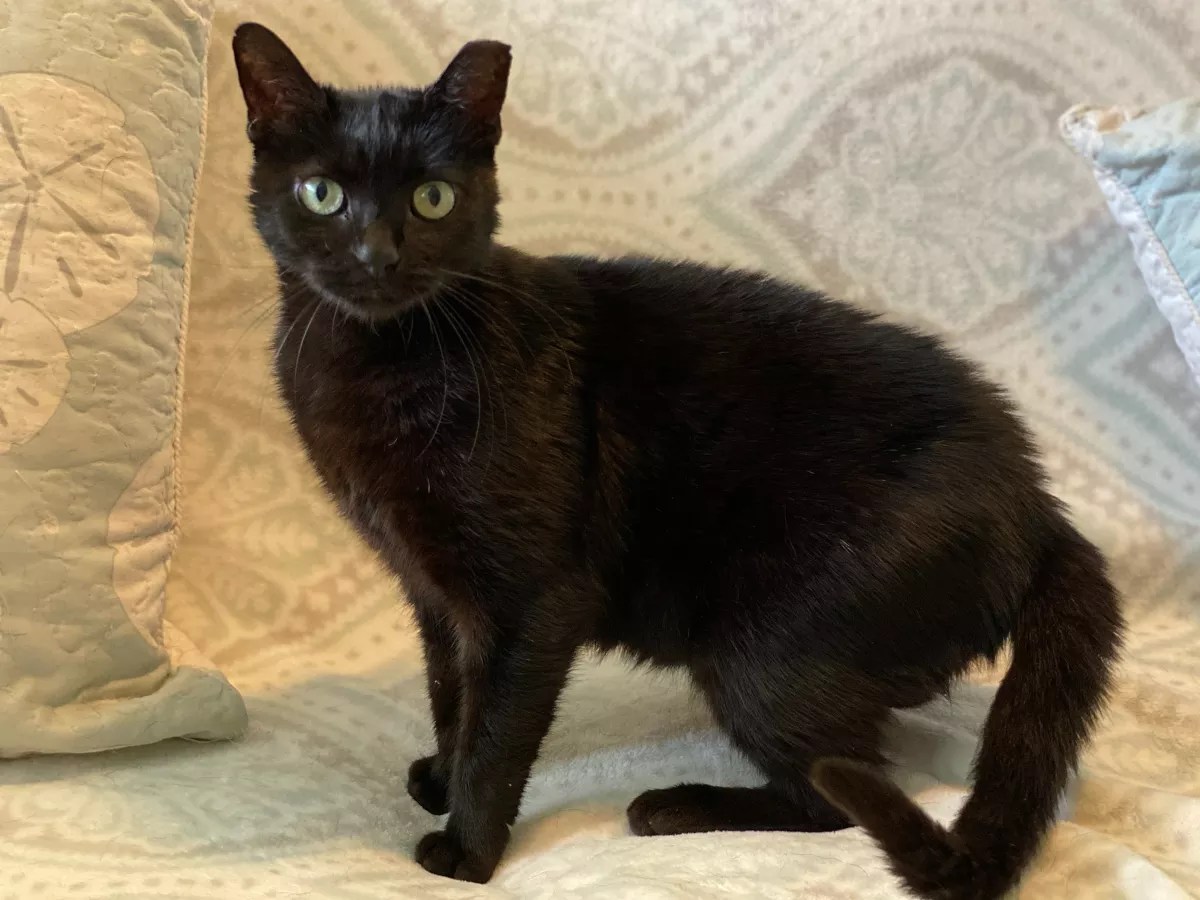
Photo by Lizette Nunez

Audio By Carbonatix
Florida International University’s official mascot is the panther, but if you ask the students who live on campus, the panther’s smaller cousin – the feral cat – is much more apt. FIU’s south campus is home to dozens of stray cats fed and loved by students and teachers.
But after COVID-19 closed the university and sent their caretakers away, FIU started to round up some of those feline friends.
Last month, FIU hired an animal trapper to capture and remove cats that were living near one of the dorm buildings. Rob Hammer of Humane Animal Removal tells New Times he was tasked with removing cats from the campus. After trapping the cats, he then took them to a local animal clinic to have them euthanized.
“[My client] says they don’t want the cats back, that mandates that I get them euthanized. I can’t take them elsewhere,” Hammer says.
The euthanization of the campus cats drew the ire of several students who learned of the situation, including Oliver Bronstein, a senior English major and moderator of the @theFIUcats Twitter page.
Earlier this month, Bronstein took to Twitter to express his disgust after learning from a friend that some cats were missing from their usual spots around campus and had possibly been euthanized.
“I think it’s disgusting, just because we don’t know a lot of answers,” Bronstein says.
FIU, in an attempt to control the stray cat population, called a company which then murdered them.
FIU murdered cats.
For no reason.
— Meow (@theFIUcats) May 14, 2020
Bronstein wasn’t the only one upset by the situation. Animal-rescue worker Lizette Nunez says her organization, Good Karma Pet Rescue, got a call from the animal clinic working with Hammer because one of the cats he captured had a microchip from Good Karma.
The rescue organization had previously helped spay and microchip the cat at a student’s request. After being contacted by the clinic, Nunez was able to pick up the feline, henceforth known as Fiu (pronounced phew).
“I was so furious – I almost cost this cat her life by leaving her at FIU,” Nunez says.
After picking up Fiu, Nunez reached out to Miami-Dade County Commissioner Daniella Levine Cava. Maria Levrant, who works in Levine Cava’s office, tells New Times she then got in touch with FIU officials and spoke with the university’s chief financial officer, Kenneth Jessell.
“He said they hired a trapper to do this and that they would stop it immediately,” Levrant says. “It had already been happening for a few days, and they wanted it done humanely.”
Following the call from Levine Cava’s office, on May 16 the university issued a statement saying FIU didn’t intend for the cats to be euthanized.
“After we became aware of the incident that took place in April involving campus cats, FIU discontinued the relationship with the company that was originally hired to remove the cats from certain areas of campus, where they were entering facilities and becoming a hazard,” the statement reads. “It was never our intention to have the cats euthanized.”
According to a work order obtained by New Times in a public records request, however, Hammer was hired to “exterminate” nuisance animals such as raccoons and cats. Additionally, the university logged the “extermination” of two cats on April 17, two cats on April 18, and three cats on April 19.
Hammer says he only takes cats to a humane clinic to be euthanized at the explicit request of his clients, or in the case that his clients do not want the cats back on their properties. He would not discuss the specifics of his contract with FIU.
“I will not ever kill a cat myself. I won’t do it. I have a pellet gun – I’ll shoot injured raccoons and iguanas but never a cat or a dog,” the trapper says.
Cindy Hewitt, a local cat advocate, vouched for Hammer’s reputation as a humane trapper and tells New Times FIU has wanted to get rid of the cats on campus for years.
“I’ve always found [Humane Animal Removal] ethical. They’re transparent about outcomes and give people the option to sterilize cats and then return them,” Hewitt says.
Hewitt showed New Times a draft of a plan she wrote to deal with the cat colony at FIU back in 2000 when the facilities department was complaining about the cats using children’s sandboxes as litter boxes and making a general mess of the campus. She says university officials have wanted the cats off the campus since at least that time, although they did not respond to her proposal to sterilize or adopt out the entire colony.
“Facilities has always wanted cats off the campus,” Hewitt says.
Jessell did not respond to multiple requests from New Times for an interview.
Although students and teachers care for the cats and have taken some to get spayed or neutered over the years, hardly any of the felines are officially owned by anyone, and thus they’re classified as feral. Students on campus are not allowed to keep pets, and at times when students aren’t on the grounds, the cats are left to fend for themselves, with FIU janitors directed to clean up after them.
Hammer says he cannot take an owned cat to be euthanized without permission from the owner, but with the exception of the one cat with a Good Karma microchip, none of the animals he trapped has had a collar or microchip.
“There’s no form of ownership,” Hammer says.
During the pandemic, spay and neuter appointments with the Miami-Dade County Animal Services Department are on hold, so FIU has agreed to work with the county and local nonprofits to find a workaround to sterilize and vaccinate the cats.
Since leaving campus in March, some students have taken a few of the cats home, accounting for some of the cats Bronstein reported missing on Twitter. The majority, however, remain on campus for the foreseeable future.